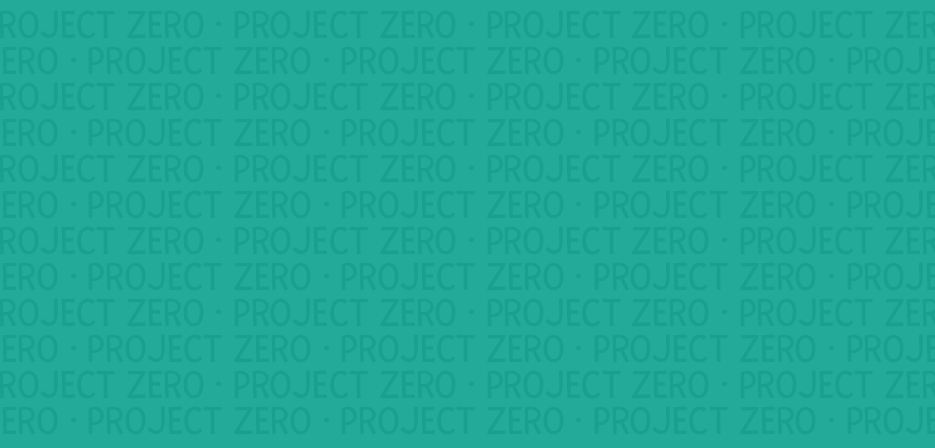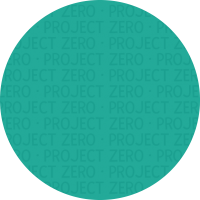- Who We Are
- Topics
- By Subject Area
- dummy
- By Level
- Projects
- Projects Column 1
- Agency by Design
- Aligned Programs for the 21st Century
- Artful Thinking
- Arts as Civic Commons
- Causal Learning Projects
- Center for Digital Thriving
- Citizen-Learners: A 21st Century Curriculum and Professional Development Framework
- Creando Comunidades de Indagación (Creating Communities of Inquiry)
- Creating Communities of Innovation
- Cultivating Creative & Civic Capacities
- Cultures of Thinking
- EcoLEARN Projects
- Educating with Digital Dilemmas
- Envisioning Innovation in Education
- Global Children
- Growing Up to Shape Our Place in the World
- Projects Column 2
- Higher Education in the 21st Century
- HipHopEX
- Humanities and the Liberal Arts Assessment (HULA)
- Idea Into Action
- Implementation of The Good Project Lesson Plans
- Inspiring Agents of Change
- Interdisciplinary & Global Studies
- Investigating Impacts of Educational Experiences
- JusticexDesign
- Leadership Education and Playful Pedagogy (LEaPP)
- Leading Learning that Matters
- Learning Innovations Laboratory
- Learning Outside-In
- Making Ethics Central to the College Experience
- Making Learning Visible
- Multiple Intelligences
- Navigating Workplace Changes
- Next Level Lab
- Projects Column 3
- Out of Eden Learn
- Pedagogy of Play
- Reimagining Digital Well-being
- Re-imagining Migration
- ROUNDS
- Signature Pedagogies in Global Education
- Talking With Artists Who Teach
- Teaching for Understanding
- The Good Project
- The Studio Thinking Project
- The World in DC
- Transformative Repair
- Visible Thinking
- Witness Tree: Ambassador for Life in a Changing Environment
- View All Projects
- Projects Column 1
- Resources
- Professional Development


Humanities & Liberal Arts Assessment (HULA)
HULA identifies and illuminates the implicit internal logics of humanistic craft in order to develop appropriate tools to assess, evaluate, and further develop projects and pedagogy in the humanities.
Founded in 2012, the Humanities and Liberal Arts Assessment project (HULA) research team has taken on the project of understanding the learning theories and related theories of human development that lie at the heart of the humanities. Professional Humanists—those with advanced degrees in humanities subjects— have been passing on their practices and craft knowledge for millennia through master-apprentice relationships. Our goal is to make the implicit craft knowledge and practices of these disciplines explicit.
The value in illuminating the craft knowledge of the goals of the humanities in relation to the methods and mechanisms by which those goals can be achieved is that then assessment becomes possible via instruments developed organically out of humanists’ practices in contrast to instruments imported from other contexts.
These assessment instruments have a twofold value for both professional humanist and those outside the humanities: they should provide for more accurate and meaningful evaluation of outcomes to undergird the presentation of humanities work to those outside the humanities, as well as providing developmental resources for professional humanists that will help them hone their craft.
HULA’s current work is focused on two areas: Civic education, as part of the Democratic Knowledge Project; and university-level ethics education, as part of the National Ethics Project. For details on these projects, please visit their websites.
HULA Code Book
A resource fromHULA-ETTLE Code Book
A resource from Humanities & Liberal Arts Assessment (HULA)New HULA Research On Humanities Grant Applications
The Humanities and Liberal Arts Assessment (HULA) project has developed new research methodologies for deepening our understanding of just how humanistic pedagogy works, what humanists expect it to accomplish, and what methods for assessing it might be. Read more...





-
-
-
Support PZ's Reach